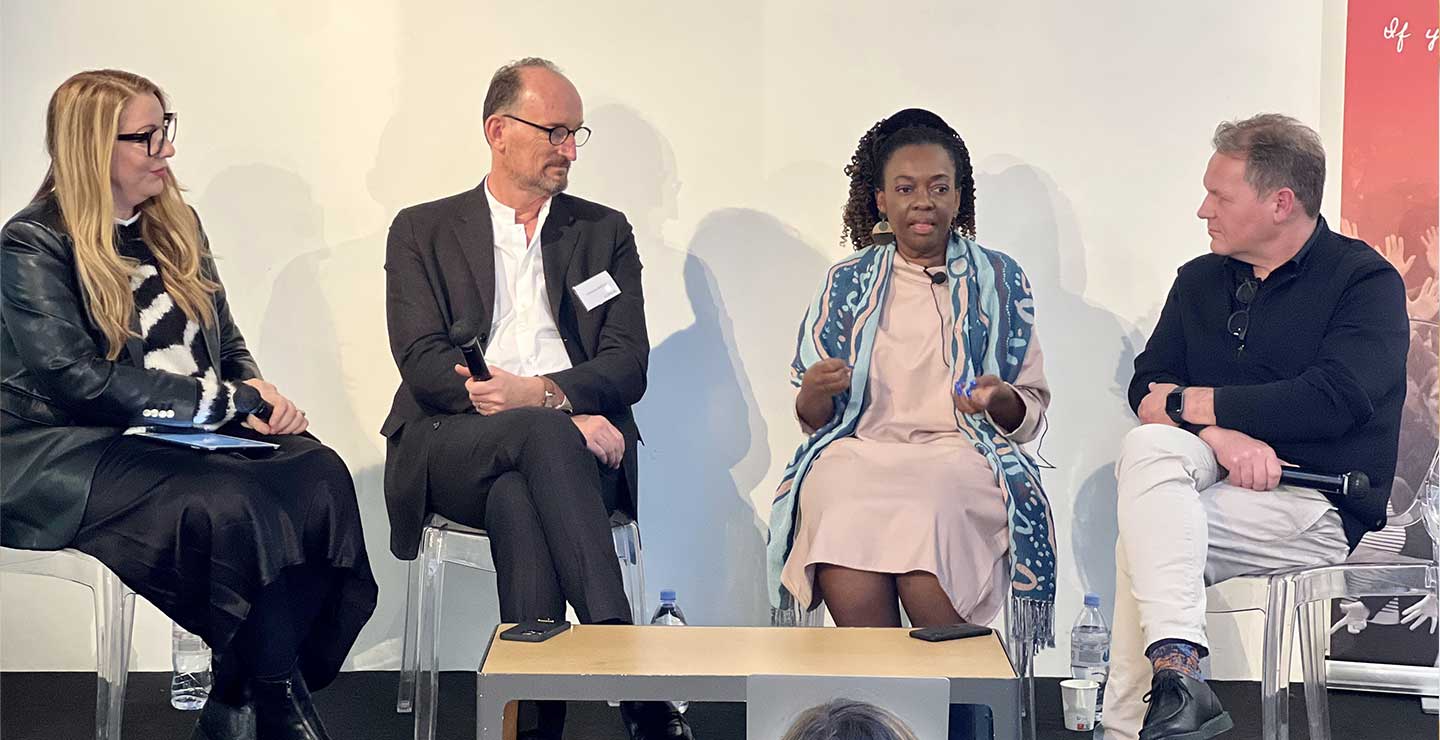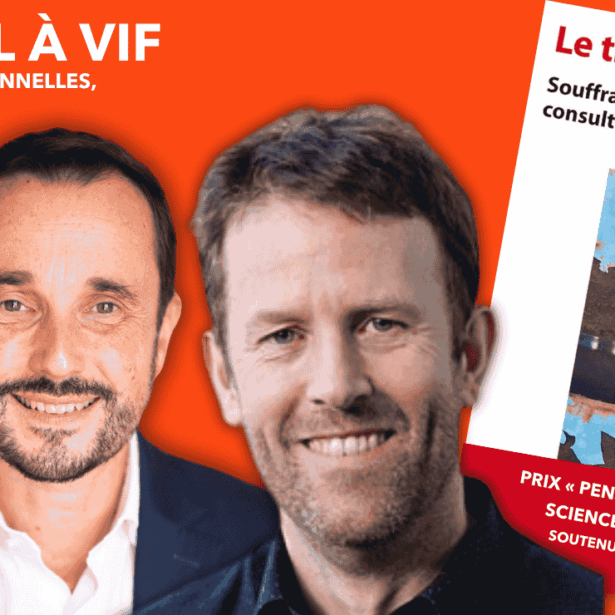Learning News
To be a good leader, must one be a leader for the common good? Three speakers share their experiences to better understand what makes a good leader, and how to become one.

Each year, the entire international Turningpoint coaching community gathers in Paris to strengthen the sense of community, define Turningpoint’s values and goals for the coming year, and to learn about leadership development trends. This 2023 edition included a panel discussion in which Christophe Babule (CFO of L’Oréal), Fadzi Whande (Head of Diversity, Equity and Inclusion at UNHCR), and Konrad Grüss (General Manager of Inter IKEA Systems) discussed the challenges that both employees face in feeling included in the company, and that leaders face in creating a positive framework in which everyone pursues the same vision, together. Because at a certain level of responsibility, technical excellence is no longer enough: you have to know how to get your teams committed and engaged.
According to Fadzi Whande, the value of a leader is measured by their ability to make their teams feel safe and at ease, to allow them to give the best of themselves. This ability is particularly evident in the treatment of diversity within teams. Promoting diversity by recruiting employees from different backgrounds is a first step, but after that it is necessary to think about each team-member’s particular needs to promote, and succeed, their inclusion. Without this second step, diversity is only symbolic.
“You have diversity but not inclusion: that’s the problem with focusing too much on diversity, and not enough on the reason behind it.”
A good leader must realize that with diversity comes a management issue, related to the uniqueness of each person’s needs, whether they are related to their faith, their physical or mental abilities, their family relationships, …
However, when you are responsible for hundreds or even thousands of employees, how can you be aware of each of their needs? According to Konrad Grüss, this is when inclusion makes sense:
“You will never understand what the situation is in the local market, so you need people who know what’s going on, and you need to listen to them. You need them to be part of the decision-making process, whether it’s at the top or at a very local level. It’s a matter of business survival!”
Obviously, leaders are not transcendent beings, who are aware of all the issues facing their teams. It is because they are human and fallible that it is necessary for them to surround themselves with the right people, capable of exposing them to certain realities that might have been overlooked.
The importance of not locking oneself into a single frame of reference can also be found on the scale of these projects for the common good. As Christophe Babule points out, NGOs, governments and companies are three interdependent bodies, none of which should be neglected if we seek to improve the well-being of all. Indeed, NGOs would be the conscience that guides actions, and the State would be the one that brings these wishes into reality by legitimizing them. But this whole process could not be sustained without the financing of companies. That’s why it’s important for leaders to realize the importance of their role in this area: they are the ones who choose which causes to support, and therefore which projects will have a chance to see the light of day.
“If you’re working on these projects alone, you’re not going to make it; you need the power of these organizations and finance in general.”
As CFO, one of the things he realized was the importance of strengthening the collaboration with HRDs, to empower them. Far from being a waste of time for leaders, this kind of investment quickly builds the commitment of their teams. In fact, leaders who offers their teams vision, goals to work towards, is more inspiring. These leaders will more easily embark their teams because they provide new meaning and purpose to their work. After all, isn’t feeling challenged, sharing and contributing to common values and objectives the best way to feel included?

Transforming News
"This seminar gave me a deeper understanding of how I function, and how others on my team do, too.."

Inspiring News
Reimagining work-life quality through real-life experiences

Transforming News
Why do so many capable, committed women still find themselves stuck on the path to leadership?

Transforming News
Interview with Ama Ocansey, Head of Diversity & Inclusion at BNP Parisbas CIB

Inspiring News
Michael Bertrand has been appointed as Director of Coaching and Programs at Turningpoint Asia
…
Turningpoint co-creates customized journeys with each client to develop managers and stimulate more innovative, cooperative and responsible leadership, in order to increase business performance and the positive impact of teams.

Turningpoint specializes in executive individual and group leadership and coaching and development.